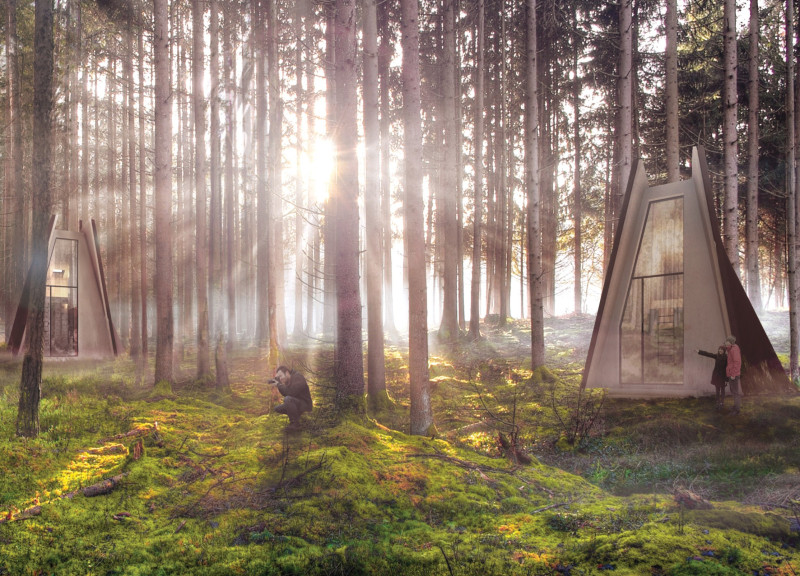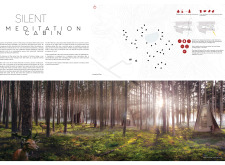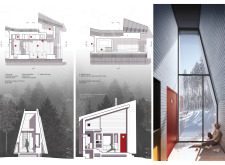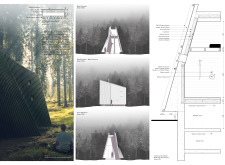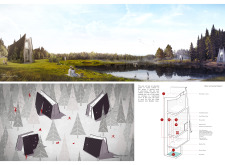5 key facts about this project
The Silent Meditation Cabin is located in the peaceful landscapes of Latvia, a country known for its abundant greenery and rich natural ecosystems. It serves as a retreat where users can find tranquility and reflection. The design combines elements of traditional Latvian architecture with modern principles. The concept of mimicry allows the cabin to blend into the forest, creating a connection between people and nature.
Design Concept
The main design feature is the roof, which rises to form a wing shape. This roof serves both to protect the space and to create an appealing visual form. Inspired by the high-pitched roofs of traditional wooden buildings in Latvia, this organic shape connects the structure to its natural surroundings. The cabin appears to emerge from the landscape, emphasizing a close relationship with the environment.
Interior Organization
Inside, the layout encourages flexibility and engagement. The first floor is open and adaptable, allowing individuals to use the area for meditation, exercise, or communal meals. Thoughtfully integrated storage in the walls keeps the space tidy, promoting a calm atmosphere. This arrangement enhances the overall experience, allowing occupants to enjoy a sense of peace.
Sustainability Features
Sustainability is an important aspect of the design. It includes systems for collecting rainwater and manual water pumps to increase self-sufficiency. A biomass boiler is provided for heating and cooking, demonstrating a commitment to environmentally-friendly options. Additionally, thick walls offer good insulation, ensuring comfortable living conditions throughout the year.
Materiality
The materials used reflect the design's focus on natural and sustainable choices. Wood cladding, vapour barriers, insulation, concrete walls, and timber screens create a warm and inviting space. This selection not only supports the building's structure but also enhances its connection to the surroundings. The combination of these materials fosters a harmonious relationship between the cabin and the natural landscape.
A skylight above allows natural light to fill the interior, creating breathtaking views of the trees and the sky. This feature deepens the occupants' experience of calmness and encourages introspection.


